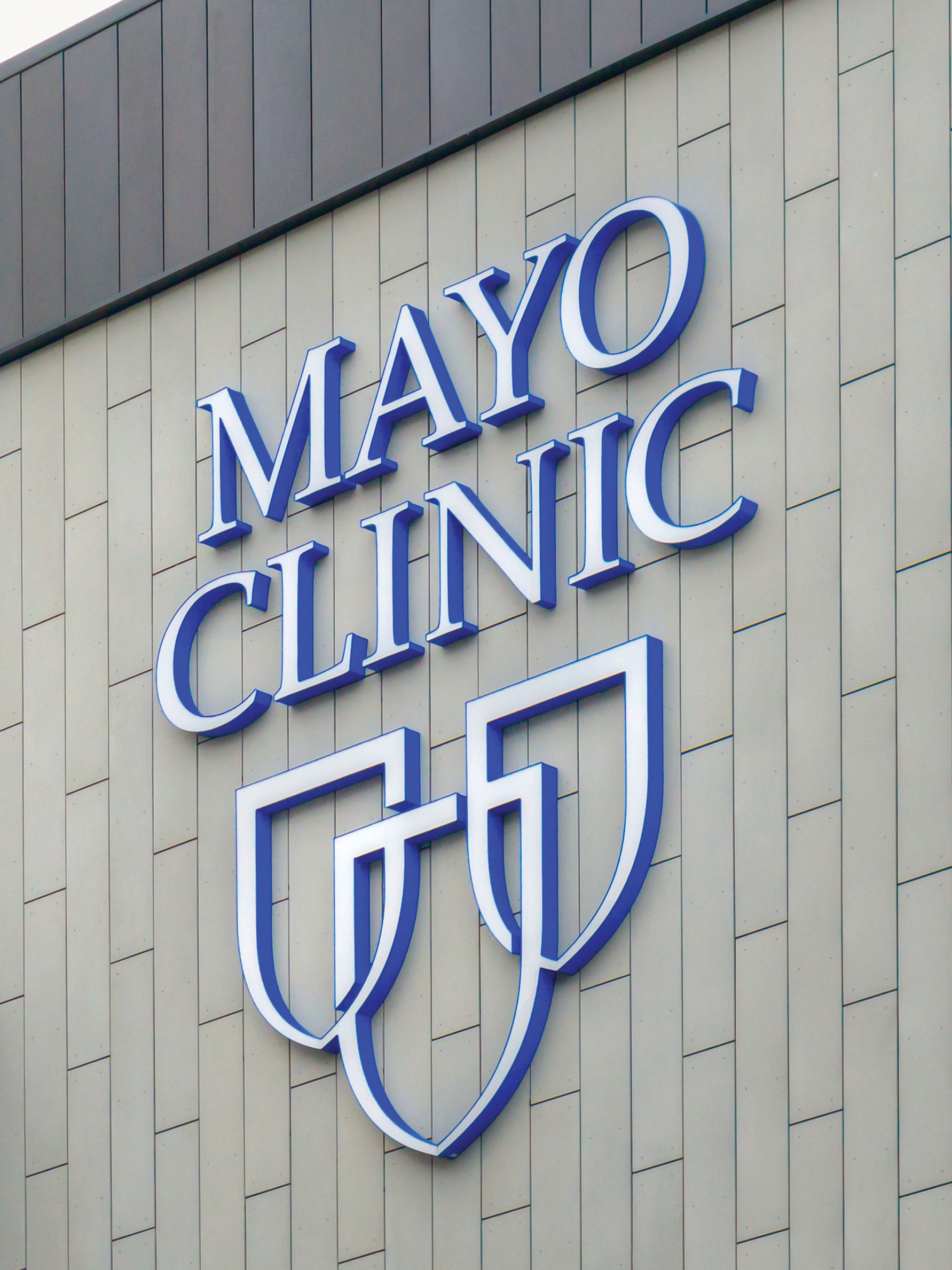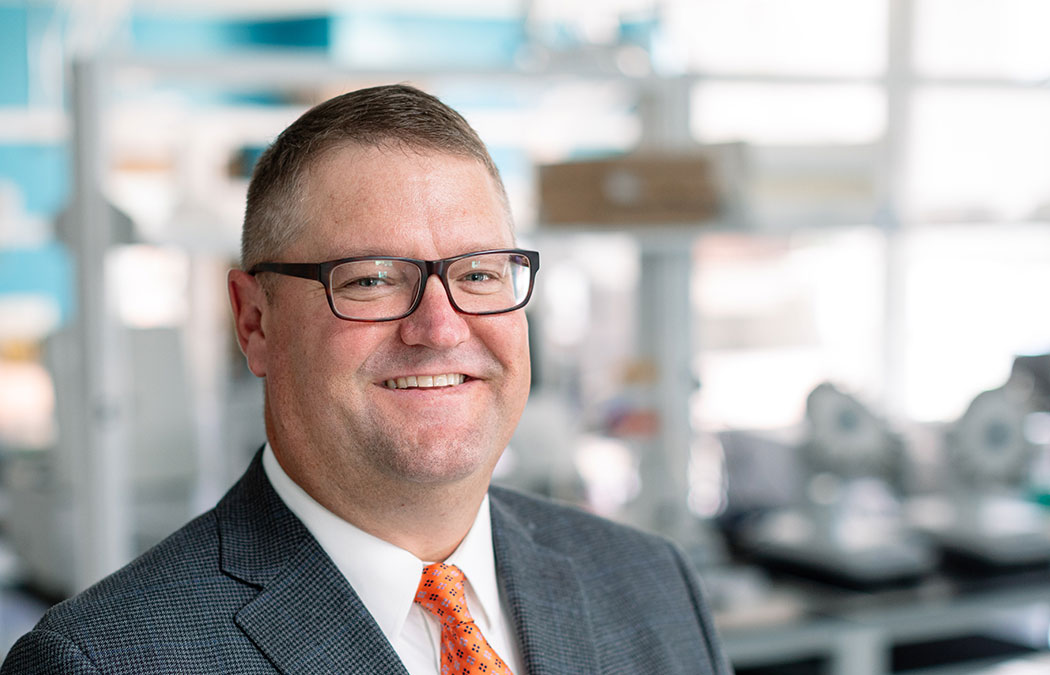In the global race to combat COVID-19, Cole Irish M’18 and his team at Mayo Clinic are often among the first off the starting block to work on critical, revolutionary new research that will affect patients’ lives.
And though the race is far from over, hurdle after hurdle, these skilled researchers are motivated to get the right tools in place to help medical personnel establish effective treatment, verify test outcomes, and obtain faster results.
Irish has worked at Mayo Clinic for 16 years, but has served as a translational research innovation and test development supervisor there since 2018, when the office was created as a rapid paced innovation and discovery department within lab medicine.
Earlier this summer, he was involved with Mayo Clinic launching a new SARS-CoV-2 neutralizing antibody test in support of the national Expanded Access Program for Convalescent Plasma.
“It was a neat opportunity to be involved with,” Irish said. “That assay was critical to physicians in order to find out which patients have antibodies in their system that may help combat COVID-19.”
According to a Mayo Clinic article, information from the new test or assay — developed after just two months — will help assess critical research efforts to establish effective therapies and vaccines for COVID-19.
Irish’s team is also involved with testing another assay that delivers COVID-19 test results in as few as 15 minutes to an hour, instead of the current wait time of 24 hours or more. That time difference could lower transmission rates, but also, importantly, will ease patients’ minds.
“For a parent, it’s about being able to take your child in for a test and get a result in a timely fashion,” he said. “It takes a lot of anxiety out of the situation if you can know within a few minutes to an hour.”
 Irish said he finds it especially exciting to be on the front end of the test development process. “There is some really cool stuff coming down the line; it’s a big need,” he said. “People are going to benefit from a lot of the tests we are bringing forward.”
Irish said he finds it especially exciting to be on the front end of the test development process. “There is some really cool stuff coming down the line; it’s a big need,” he said. “People are going to benefit from a lot of the tests we are bringing forward.”
Each day for Irish is fast paced, exciting, and varied — but it isn’t without its share of disappointments, as well as discoveries.
“That’s just science as a whole,” he said. “You have to be comfortable with failure.” Ironically, much of Irish’s work is actually about eliminating failure. “From our side, when we look at a test development project, the needs of the patient come first; it’s the hallmark at Mayo Clinic. We ask ourselves how we can make the best test with the best results but also have it be easy and understandable for the people operating it. Complex protocols are needed to run these assays.”
Irish said he has always been fascinated by science. With a background in biology, he started out at Mayo Clinic in the department of lab medicine, where he began working with viruses. “On the other side, I was involved in performing these tests,” he said.
As he looked for other opportunities within Mayo Clinic, Irish found that obtaining his MBA degree from Saint Mary’s in 2018 gave him added confidence and skills to advance his position.
He found the university’s flexible schedule and blended online and onground delivery a perfect way to balance his work at Mayo Clinic and his studies simultaneously.
And he found that much of what he was learning has directly applied to his career. “A lot of the strategy components learned during class are things you can really start to consider during test development as a whole,” he said. “Learning who you can reach out to and realizing you don’t have to be the content expert on everything. It’s important to learn how to use your network to figure out where you need to move to. Finance classes have also been extremely helpful and very eye opening when planning.”
At Mayo Clinic, Irish is involved in an extensive annual planning process that involves aligning resources and budgets. Still, he said, priorities are frequently realigned based on the needs and priorities of the areas he assists. He stresses that, at Mayo Clinic, a large network of teams, from development and lab technologists, to physicians, facility crews, and beyond collaborate together to ensure success.
“You look at these projects and see how everyone is working for that one piece to move forward,” he said. “I’m a very small component. The people I work with every day are truly making a difference, and I just go along for the ride.”
